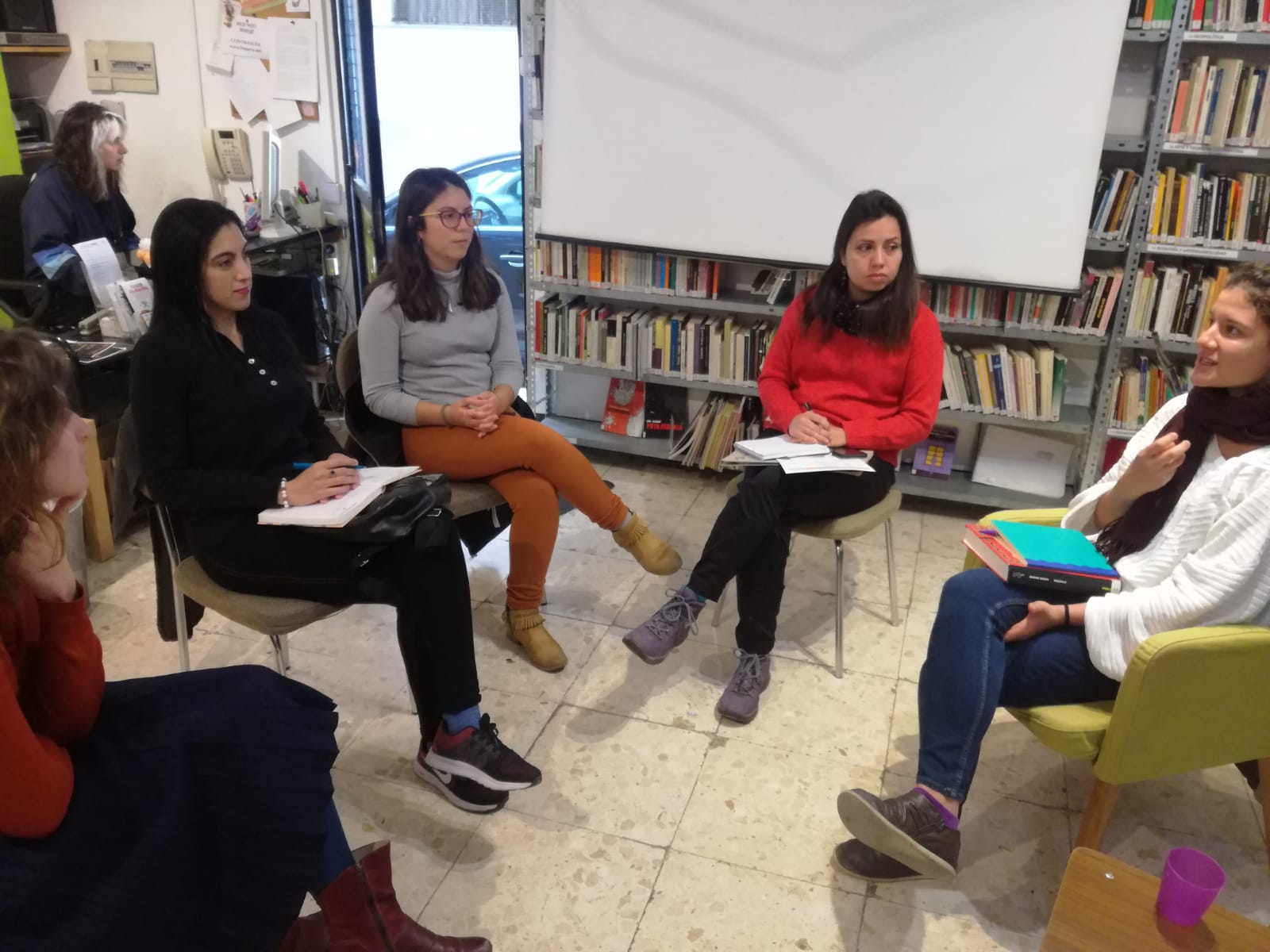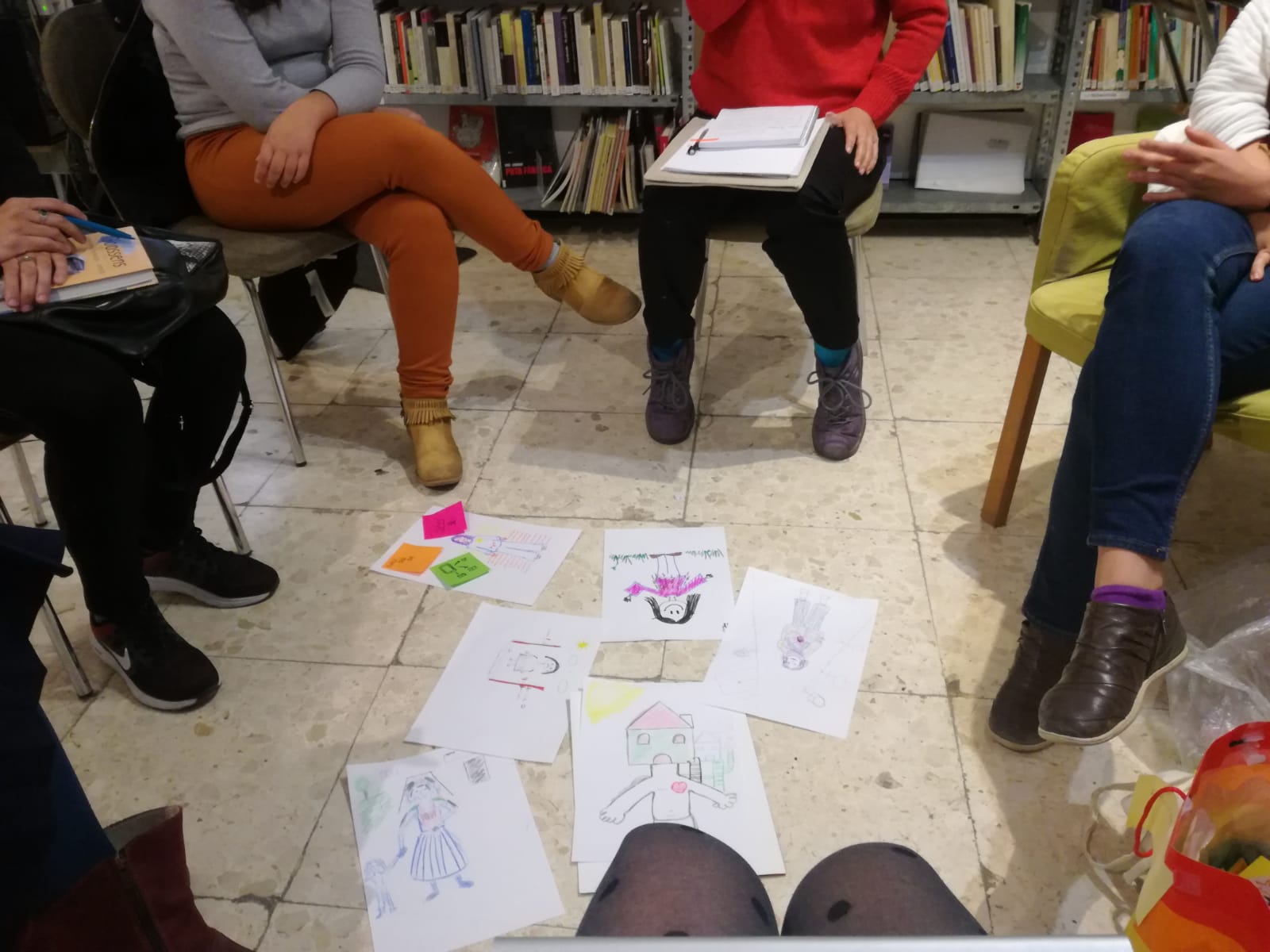On Saturday 7th March 2020, the tenth Open Data Day took place with people around the world organising over 300 events to celebrate, promote and spread the use of open data. Thanks to generous support from key funders, the Open Knowledge Foundation was able to support the running of more than 60 of these events via our mini-grants scheme.
This blogpost is a report from the TuTela Learning Network in Spain who received funding from Mapbox to map the housing situation of migrant women in Granada.
On the 7th of March, as part of Open Data Day, we organised a workshop with migrant women. We discussed our experiences of housing in the city of Granada, Spain and learned about the relevance of open data in housing initiatives.
The event was organised in a collaboration between the TuTela Learning Network, an international multilingual open initiative for the exchange between marginalised activist experiences, and Colectivo Sirirí, an association of migrant women in Granada. The facilitators of the event were: Kitti Baracsi, Diana Carolina Escobar Blanco and Dresda Emma Méndez de la Brena. The event took place in the Biblioteca Social hnos Quero, a self-organised community library, to which we are grateful for hosting our event.
The event aimed to raise awareness about the importance of open data and at the same time to boost the dialogue about the housing situation of migrant women in the city of Granada and open the ground for further encounters and collaborations. Several initiatives work on housing rights; however, we aimed to create a space where migrant women of very diverse backgrounds and experiences can meet and talk for themselves.
When we announced the event, it attracted significant interest but many of the inquiries came from persons who did not have a migratory experience. Therefore, we proposed to organise other encounters in the future for a wider public. We have realised the workshop with a smaller group of migrant women, most of them relatively newcomers in the city.
The encounter had two parts: the first aimed to share our experiences and feelings about our housing situation. First, through a drawing exercise, we made connections between our body and housing, acknowledging that our body is the first territory that we inhabit. The activity led to a reflection on how the conditions in which we live impact our mental and physical wellbeing. Then, with an acting exercise, we went on to discuss housing justice by having a closer look at the inequalities and the underlying mechanisms. We have concluded the discussion with a collective mapping on our housing experiences in Granada.
We dedicated the second part of the workshop to learn about what open data means as it was a relatively new concept to various participants. Together we discovered different open mapping tools and initiatives in housing activism that use those tools. For instance, we have learnt about the Anti-Eviction Mapping project from San Francisco.
We have decided to create a mailing list and take the initiative of an open mapping project about housing experiences, with particular attention to positive housing experiences of migrant women in the city of Granada. The idea was to call it the map of “casas acogedoras” and work towards the creation of a support network along with the mapping. We have also decided to support other collectives of migrant women in replicating the workshop and collaborate on this initiative.
(Due to the lockdown in Spain and the energy we had to dedicate to other solidarity projects, we had to suspend this process. We will proceed after the lockdown as we see it of special importance, especially in the current situation. In addition, we plan to organise events that connect different questions from local activists and open a space for learning about the potential of open mapping projects collectively.)










